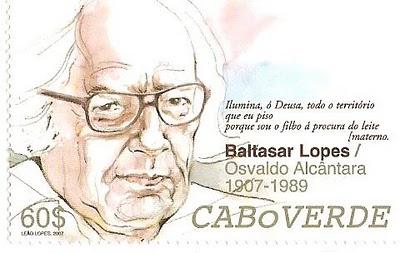The two
most popular means of art in Cape Verde are pottery and weaving. As far as
pottery goes, the most important pottery pieces that are created are large
water containers (called potes),
vases, and other sculptures.
Tapestries colored in white, indigo, and black are also very popular
items. Indigo dyed clothes used for clothing are commonly made and used in Cape
Verde.
Some of
their arts were introduced by the Portuguese, like crocheted blankets. Yet, other styles were influenced by
the African mainland, such as woodworking, embroidery, and woven baskets.
Of all the
Portuguese-speaking African countries, the literature of Cape Verde is one of
the strongest traditions. Generally
speaking, writers fall into either two categories: poetry and novels. And of course,
many writers do both. And with that being said, many writers publish works in
both Portuguese and in Crioulo (or Cape Verdean).
Eugénio
Tavares is perhaps one of the most well-known poets of Cape Verde. Many of his
poems are closely tied to the musical form most associated with Cape Verde,
morna.
Another
author and poet is Baltasar Lopes da Silva, whose 1947 novel Chiquinho is considered by many to be
the greatest Cape Verdean novel. (He often wrote under the pseudonym Osvaldo
Alcântara.) Before this, he
gathered together with other Cape Verdean writers and created Claridade, a journal publishing essays,
short stories, and poetry about problems in their society and their view of the
reality that faced them at that time.
Manuel
Lopes was another author that worked with da Silva on Claridade. One of his
works, Os Flagelados do Vento Leste,
was made into a movie in 1987.
Orlanda
Amarílis is one of the more prominent women writers of Cape Verde. She tends to
write about topics relating to the lives of Cape Verdean women as well as the
Cape Verdeans who live abroad for one reason or another, as she has for many
years throughout her life. Literary arts are something that runs in her family.
She’s related to Baltasar Lopes da Silva, and her father was one of the people
who worked to compile the first Cape Verdean Creole dictionary.
Up
next: music and dance




No comments:
Post a Comment